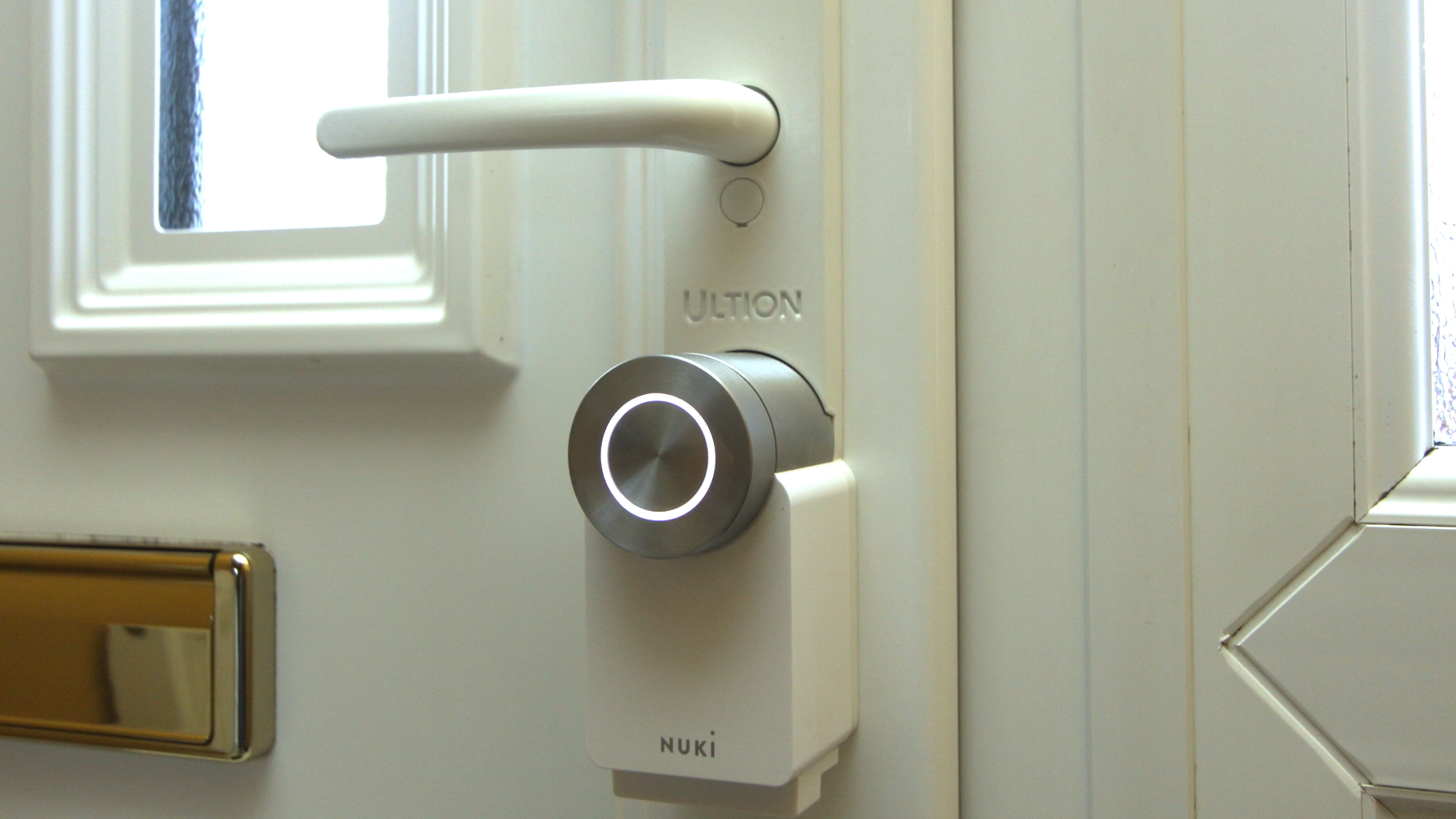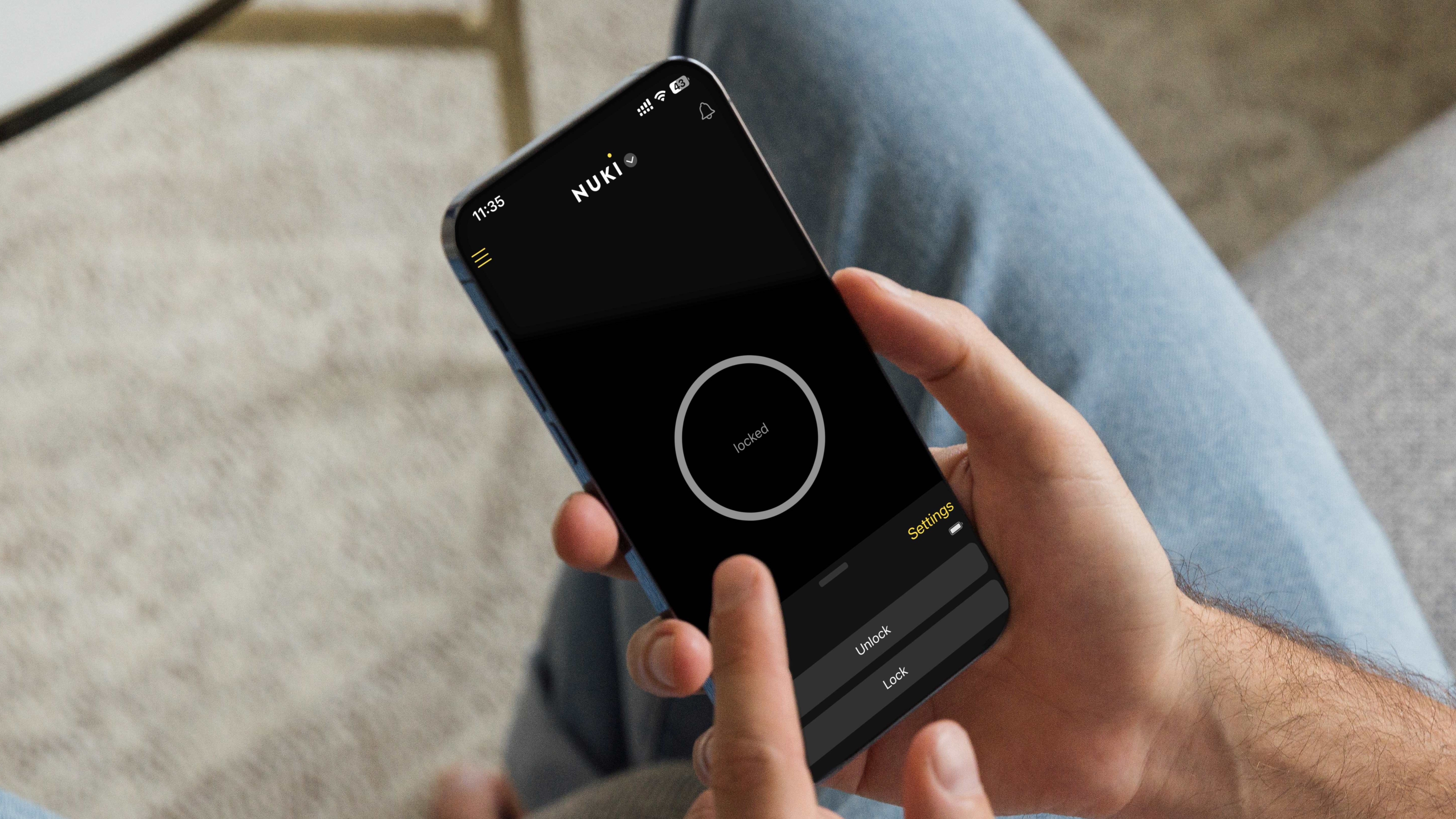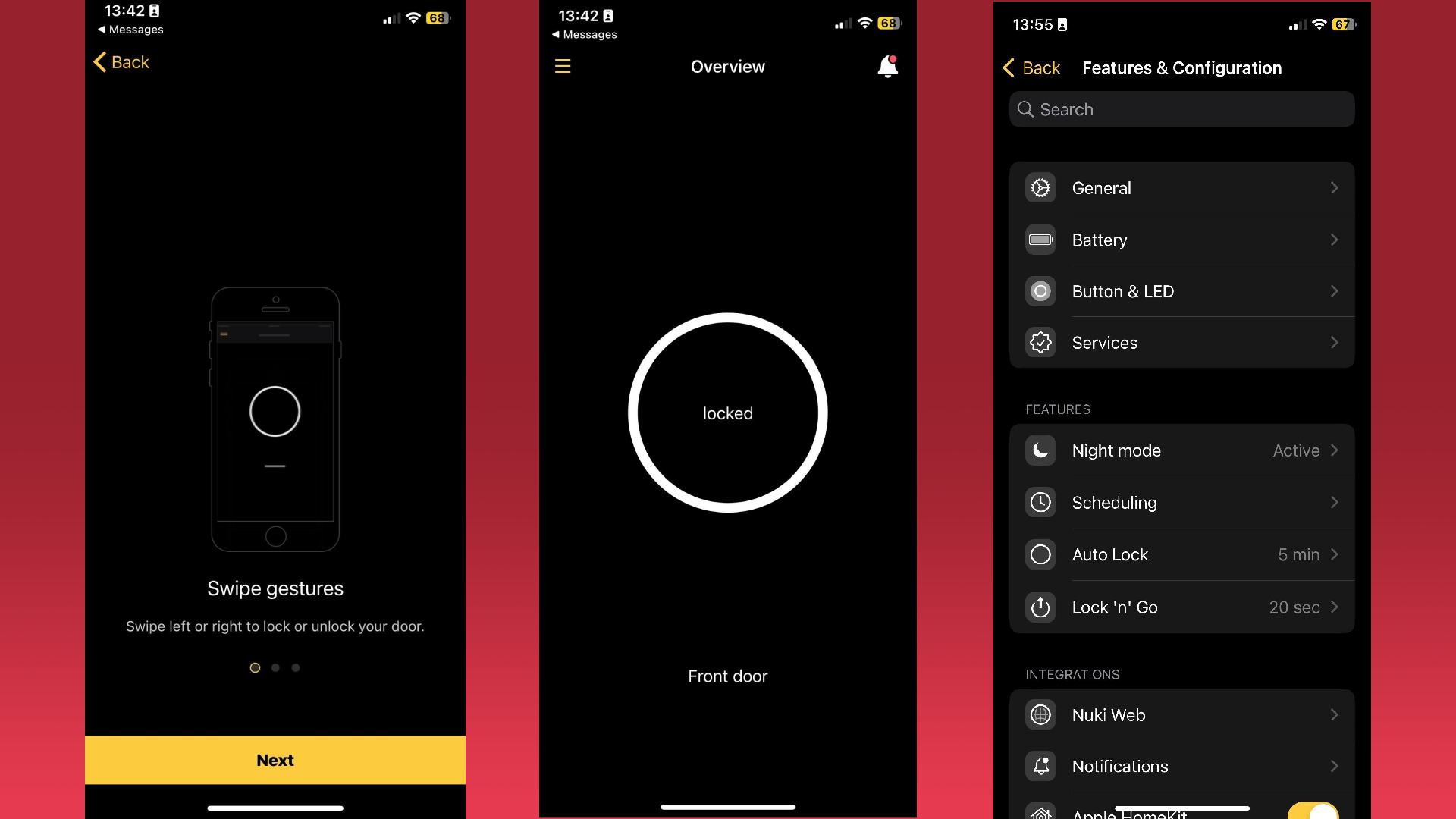'Smart tech does more than just convenience' - how Ultion and Nuki’s smart lock collaboration brings security to the fore

Editor's note: 5 August 2024
A representative for Ultion has clarified that while keyless entry is a benefit for its own devices and smart locks more broadly, in Ultion Nuki's specific case there's also an option for a high-security physical key, which is detailed below, marked with an asterisk*. The rest of the article remains as originally published.
In an age where homes are just getting smarter, there’s pretty much nothing that the best smart home devices can’t do, whether that’s by using voice commands to turn on the best smart lights or answering one of the best video doorbells right from your phone. Parallel to this is a rising interest in smart home security; enter the best smart locks.
More people have gravitated towards these clever entryway guardians for both security and convenience, as they allow for keyless entry using smartwatches and phones in addition to your smart home voice assistant.
In itself, this technology is a game-changer. Still, industry giants Ultion and Nuki have pushed the boundaries further with a partnership that birthed the Ultion Nuki smart lock - combining Ultion’s high-security lock design with Nuki’s smart functions. While the device is only available in the UK and Europe, Nuki’s smart locks can be shipped to the US for certain compatible doors - though that doesn’t include deadbolts - and the brand is investigating the market.
In a conversation with Nuki’s CEO Martin Pansy and Ultion’s joint CEO Nick Dutton, the two detailed their collaboration and why consumers are now deciding to go smart with their locks.

Convenience and security go hand-in-hand
When it comes to choosing a smart lock, there are two things to consider: convenience and security. For Pansy, it’s the convenience aspect that drives his recommendation for switching to smart locks.
Sign up for breaking news, reviews, opinion, top tech deals, and more.
“Keyless entry is all about making your life easier. Smart locks are very simple to install and you can replace your physical keys with your smartphone, you can do fingerprint access, and so on”, Pansy says. “I no longer have keys, and I don't need to worry about keys,” he continues. “That's the core where it starts, and we gradually build added value for our users.”
While convenience sits at the top of Nuki and Ultion’s priorities, Dutton recognizes that this shouldn’t take over from the importance of security and that it doesn’t have to be an ‘either/or’ situation.
“When we started this journey, I would have wholeheartedly agreed that yes, it's about the convenience. But we were keen to make sure that convenience didn't take over from security; they can be hand in hand. I think smart tech does more than just convenience,” adds Dutton.
In Dutton’s firsthand experience, that’s certainly been the case, as the convenience-security hybrid approach in the Ultion Nuki smart lock partly comes from his experience with family members forgetting to lock the front door.
“In the 15 years that my wife and I have been together, she's never locked the front door," he says. "Now I've got it set so that when she leaves home, the door locks itself. This is where convenience then merges into actual, real-life security. When she gets home, the door will know that she's arrived, and it’ll unlock itself for her. When she closes the door, it locks it behind her.”
*It is, however, worth highlighting that Ultion Nuki locks will still accept a physical key if people prefer that as a means of entry, with a brand representative highlighting that "many homeowners like having extra peace of mind." Ultion keys are twice as thick as normal door keys, carry a unique security code and can only be sourced from Ultion directly; and, you also buy a KeyTag model with Apple Find My tech built-in to help locate a lost key.

Should consumers be concerned about hacking?
Cyber security and privacy concerns may prevent consumers from investing in a smart lock. This looming anxiety still plagues smart home owners, but with accreditations (such as Ultion Nuki’s from the British Standards Institution), Dutton has hope that consumers can have peace of mind.
“You look at the products that the Kitemark emblem features on, and it’s like the accepted comfort blanket," he says. "It’s the accepted standard that people will see and think, 'Okay, that's not a cheap import product'."
In the US, you should look out for an American National Standards Institute (ANSI) or Builders Hardware Manufacturers Association (BHMA) certification.
Pansy argues that in a majority of cases when things may go wrong, consumers will find that there are few occasions where a physical key will be more secure than a digital key.
“If you lose a physical key, then you need to exchange the lock, but because a digital key can always be deactivated, you can activate a new one," he explains. "Then the job on our end is encryption and ensuring all the communication between smartphone, smart lock, and our servers is always done most securely. We have encryption protocols and they're publicly available”.
Plus, many smart locks look just like regular locks from the outside, and while we're not bedded into the criminal underworld to know for sure, the Venn diagram of home burglars and those capable of hacking a well-certified and accredited smart lock is probably rather sparse.

The pros and cons of retrofit solutions
When buying a smart lock, many consumers tend to solely focus on the smart aspect instead of the lock itself, and in recent years, retrofit solutions have become increasingly popular. Devices like the SwitchBot Lock are retrofit solutions designed to use existing door locks rather than replacing it with an entirely new system.
As a smart lock provider, Pansy touches on why he believes the popularity of retrofit solutions has appealed to consumers. “I think there’s one important aspect about the popularity of retrofit solutions, which is the speed of technology, technological innovation,” he says.
Retrofit smart locks are a great backup option, especially as they’re often more affordable and offer a little more flexibility than full smart lock solutions. However, that also means the hardware - and sometimes, even the software - might not be as sophisticated.
The technology behind smart locks, Pansy counters, can have a lifespan of 10-20 years, meaning you can get more value out of a smart lock as opposed to a retrofit lock. Still, the teams at Nuki and Ultion are always looking for ways to enhance the tech aspect. “I know that in a few years from now, we’ll have some more groundbreaking innovations, new radio technologies, and more," Pansy explains.
As smart home security technology continues to improve, there are ever more options for securing, controlling, and connecting your smart home. Just last year, the Nuki Smart Lock (4th gen) became the first smart lock in Europe to offer Matter over-Thread, and you can expect to see more and more devices offering similar degrees of security and connectivity in the years to come.
You might also like

Rowan is an Editorial Associate and Apprentice Writer for TechRadar. A recent addition to the news team, he is involved in generating stories for topics that spread across TechRadar's categories. His interests in audio tech and knowledge in entertainment culture help bring the latest updates in tech news to our readers.